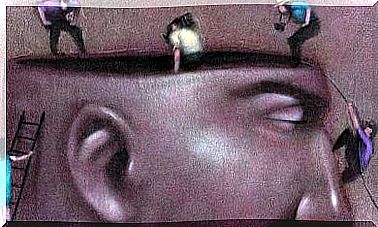Flexible Mind: A Skill We Should All Learn

Albert Einstein has said that the real potential of our intelligence is its ability to change. One of our best virtues is our ability to receive new perspectives and ideas while banishing concepts that no longer serve us. For this reason, it is not surprising that in the field of psychology and also in the arts, a new concept of “flexible mind” has even been forced.
A few years ago, an exhibition representing the same idea was held at the MoMA Museum of Modern Art in New York. Our society and we humans live in a moment when everything is constantly changing. At the same time, science and technology have been increasingly important ways of dealing with reality, a way of working, and a way to unite and even understand the world.
Among others, Paula Antonelli, MoMA’s research director and architect, talks about our need to develop a more flexible way of thinking than before in her interesting book Design And the Elastic Mind . Only in this way will we be able to survive and give our best in this ever-changing environment, where we are almost forced to improvise and react quickly to solve multiple challenges we face at once.
Achieving a flexible mindset is not quite easy, as the brain tends to be very resistant to all changes and they like to live clinging to their own areas of comfort. However, teaching a more innovative and flexible mindset to our conservative mind can help us create very positive change.

Characteristics of a flexible mind
If we were to decide which of our psychic qualities would be the one we should all train, develop, and apply in our daily lives, it would undoubtedly be cognitive flexibility.
On the opposite side of it, we could again put on a so-called fixed mindset that gets annoyed and frustrated almost constantly, noticing that things don’t always go the way the other wants and hopes. These are the people who are unable to receive criticism, who are unable to deal properly with mistakes and failures, and who tend to avoid challenges because they are afraid of failing.
Knowing this, we should reshape the concept of talent. Therefore, while it is true that there are people who have a natural tendency to certain skills (such as music, art, and technology), this advantage will not allow them to achieve success or well-being if they do not have this fascinating skill we call flexible minding. . The flexible mind is the ability to open ourselves to new worlds of thought and apply these processes in life in a very concrete way. This is a skill that really means an advantage. Next, let’s look at what is really about flexibility.
A flexible mind is getting used to ambiguity
Things are never black or white. Our reality is based on a set of strange or even unpleasant shades of gray that we need to get used to. In this way, the resilient mind becomes accustomed to the uncertainty that defines many of the things around us: today the work so obvious to us may be the past tomorrow, or the person who offers us his support today may not be with us tomorrow.

The flexible mind sees farther than usual
Normal is the safe space that is so easy to get used to. It gives us a sense of permanence, serenity and rooting. However, if there is one thing we should learn to understand is that life is not static, as it often flows, fluctuates, changes, and moves even very quickly and from one direction to another. One way to cope with these changes is the ability to innovate; ability to see farther than usual.
In this way, to develop innovative thinking, we need to be able to rely on our creativity and intuition. Something like this can only be achieved by observing, but at the same time being able to see farther than usual, perceiving needs and new perspectives, and applying proactive behavior.
A flexible mind is the ability to tolerate failures: making mistakes is learning from them
How we tolerate our mistakes and how we deal with them says a lot about us. Where the so-called fixed mindset locks in and seeks to avoid situations where it does not believe it is a competent, flexible mind to apply a different approach. The flexible mind understands, for example, that failure is not a reason to give up certain goals, but on the contrary, it is an opportunity to learn. Often, a step back can be just the way we get more momentum to achieve our goals.
A resilient brain never ceases to question and is nourished by curiosity
If we were to give the example of a man who has been able to apply a flexible mind throughout his life, we would definitely emphasize Leonardo da Vinci in this sense. This Renaissance-era great man, scientist, and artist soul explored the world and its secrets precisely through observation, experimentation, and courage more than any other human being at that time.
Leonardo da Vinci lived far ahead of his time in many different fields. All of his art, vision, thoughts, and ideas were thanks to the gift we all have, and which usually shines to its greatest during our childhood: we speak, of course, of curiosity. The flexible mind is not afraid of change, but on the contrary strives for it, because what motivates the flexible mind is precisely the constant need to learn and know.
Finally, as the American psychiatrist Robert Cloninger has pointed out, if we allow our minds to expand on new news and changes in our daily lives and learn to accept them without fear and in a creative way, our personality will be strengthened. A flexible mind that dares to reach beyond its comfort zone will never return to normal again.









